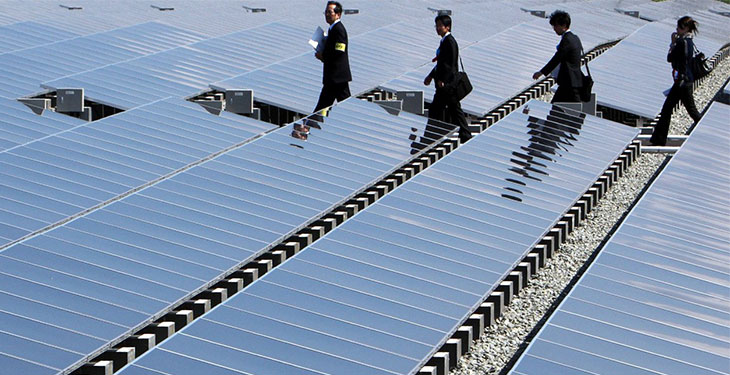Japan’s Kyushu Electric Power Co said it restricted third-party solar power supplies over the weekend, marking the first time a Japanese utility has curbed the use of renewable energy to avoid a sudden blackout.
The move underscores the need for the country to boost its transmission capacity between regions, to allow it take full advantage of the growth in renewable energy in the wake of the Fukushima nuclear disaster in 2011.The Fukushima disaster prompted a shift toward renewable energy, backed by mandatory preferential rates for solar, wind and other supplies, according to Reuters.
However, the government changed regulations in 2015, allowing the old utilities, which control the country’s transmission grids, to restrict supplies of renewable energy from solar or wind farms if needed to maintain grid stability.
Kyushu, Japan’s fifth-biggest utility by sales said in August that the restart of a fourth nuclear reactor could lead to possible restrictions on the purchase of renewable energy.
The curtailment can be made at short notice and without having to pay compensation, however, the restrictions can only be made after first curbing hydro and fossil fuel power output or transferring excess supplies to other regions.
Solar power has grown fast on the island of Kyushu, but the unstable output during the day depends on weather patterns and can create a headache for Kyushu Electric to stabilize the grid.
